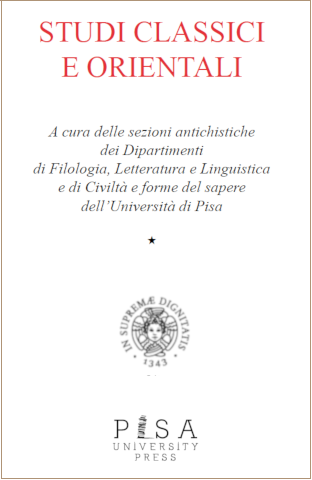UN QUINDICENNIO DI RICERCHE SU AUGUSTO - UN BILANCIO STORIOGRAFICO*
Abstract
Fifteen years of research on Augustus. A historiographical assessmentThis article presents a critical assessment of the historiographical debate devoted to Augustus between 1996 and 2006. Augustus’ powers continue to be scrutinized from an institutional point of view, being the object of a number of studies, which are summarized in the first part of the article. However, in reaction to a juridical analysis in the tradition of Mommsen, others approaches have developed. First, the contribution of historical sociology has been used to show to what extent one of the bases of Augustus’ power was his acceptation by the diverse strata of Roman society (second part of the article, which presents in a critical way Flaig’s studies about consensus). The forms of expression and repression of the opposition to Augustus have been also examined (in the third part, which takes into account the books of Dettenhofer, Rohr Vio and Cogitore). The fourth section of this contribution deals with the visibility of Augustan power and its representation (or self-representation) in the public space of Rome and of the cities of the Empire. An update of the bibliography of the last five years follows. Among the most important publications is Scheid’s new edition of Res Gestae, which provides a more reliable text and a solid commentary. The article concludes with a brief overview of the most recent studies on other important sources (the aureus of 28 BC, the lex portorii Asiae and the autobiography of Augustus), on the role of the auspicia of Augustus in the new constitutional settlement, on the symbolic and real meaning of the restitutio of many Roman institutions and finally on the complex relationship between Augustan poets and the moral legislation of the princeps.
Fascicolo
Sezione
Articoli


